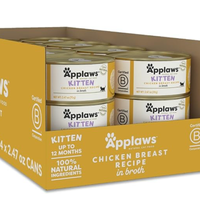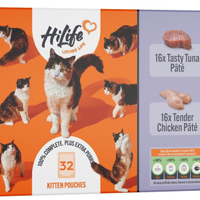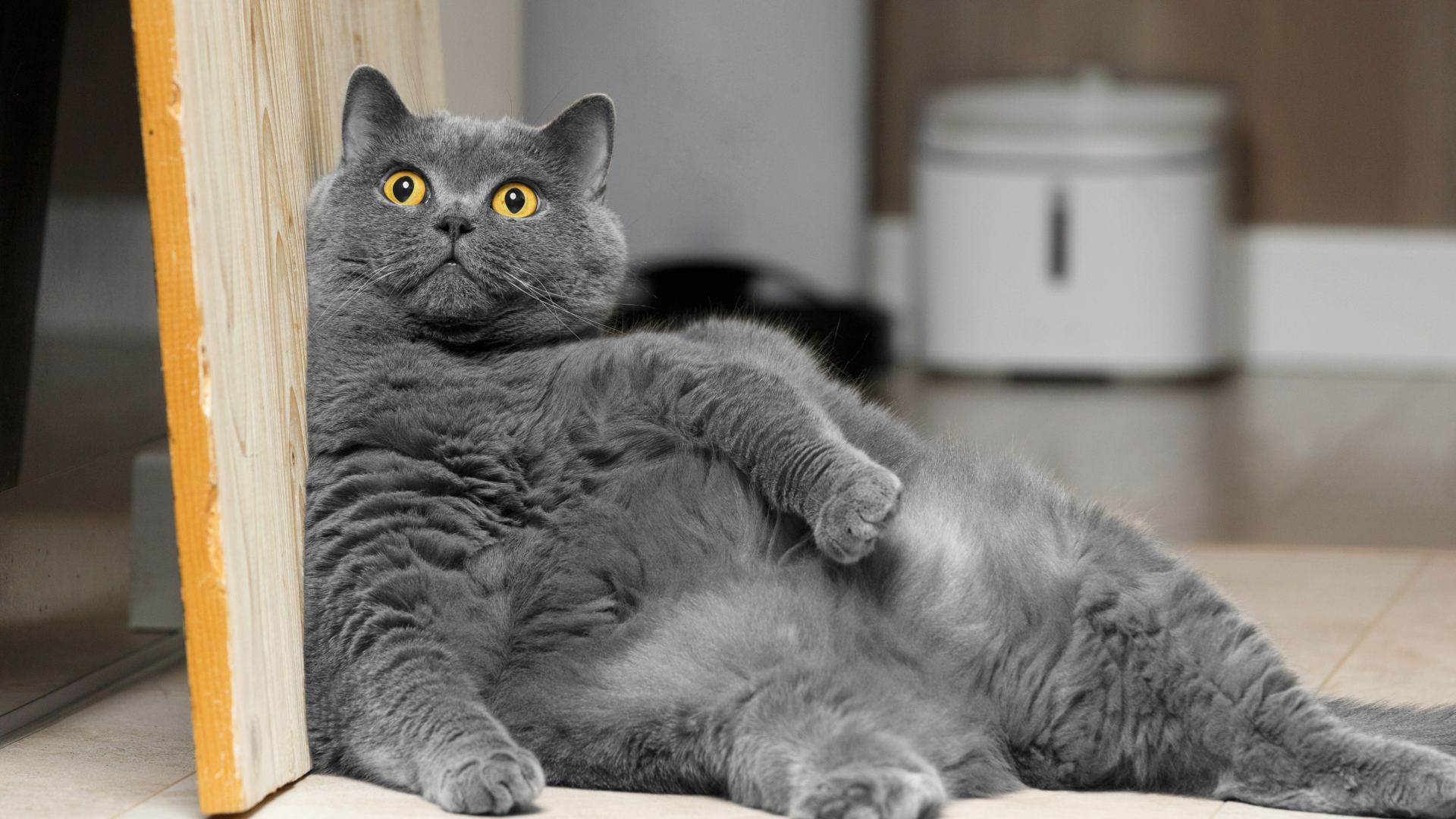How to tell if your kitten is overweight: A vet’s guide
A vet reveals how to tell if your kitten is overweight and shares some simple things you can do to help them shed those extra pounds
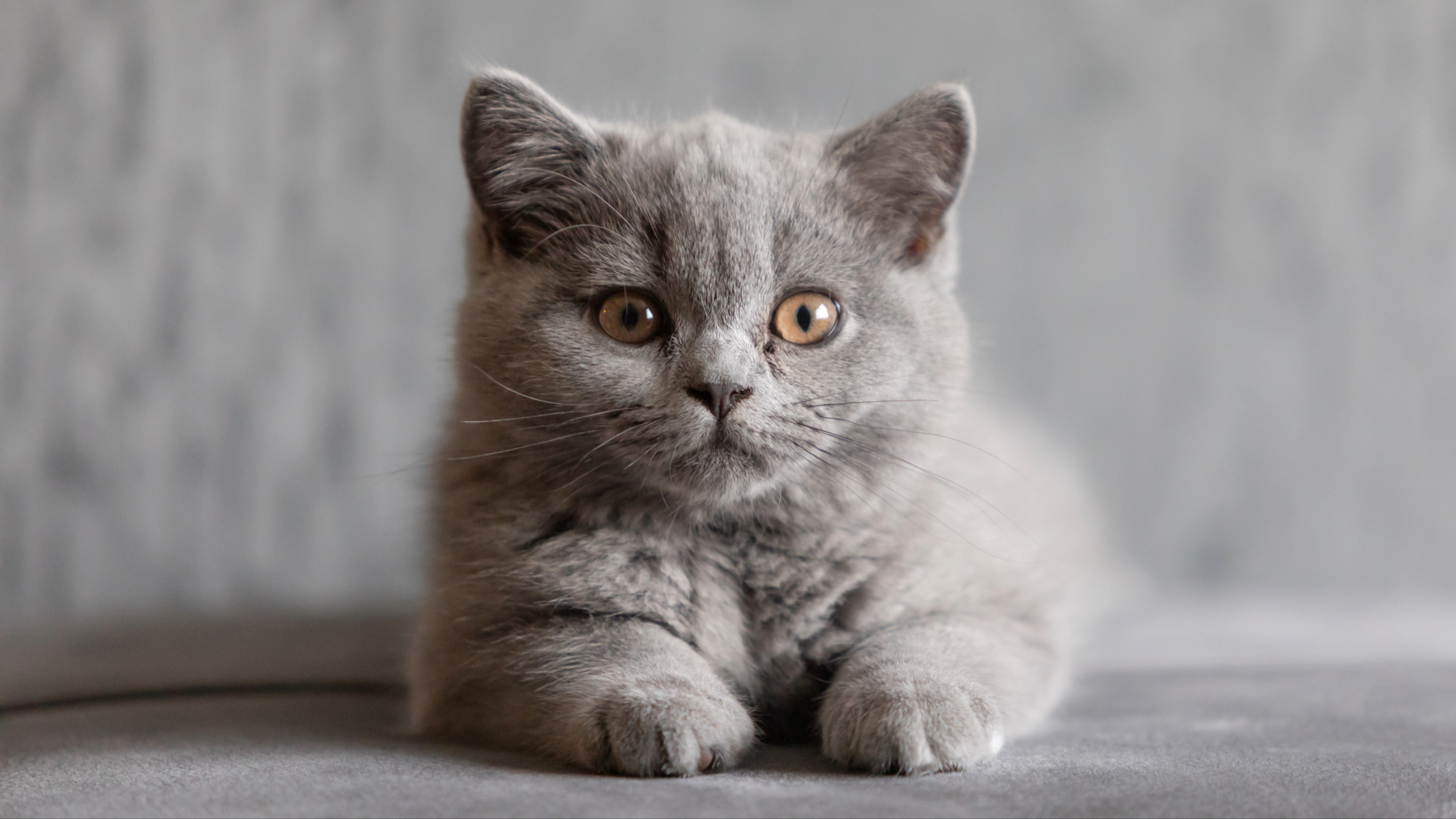
Wondering how to tell if your kitten is overweight? It may be something you're concerned about if you have a sneaking suspicion that your young fur friend is a little more fuller figured than you think they should be.
While feeding your new bundle of fluff a diet of the best kitten food is super important for their growth and development, it's also vital to consider portion size.
How much food a kitten should eat will depend on their age and breed and sticking to the guidelines on food packets and tins, or following the advice of your vet, is the best way to ensure your feline stays fit and well.
To help you figure out if your kitten weighs more than they should, we consulted expert vet Dr. Rebecca MacMillan. Below, she outlines the signs that may indicate you kitten is overweight, some potential reasons that may be causing this and how you can help your kitten to shed those extra pounds.
How to tell if your kitten is overweight

Bringing home a new kitten is such an exciting time, but that excitement can soon turn to worry if you notice your fur friend gaining too much weight.
We found ourselves curious about whether or not there's any way you can gauge whether your kitten is the right weight or not and it turns out, there is!
Here are the signs Dr. MacMillan suggests you be on the lookout for...
PetsRadar Newsletter
Get the best advice, tips and top tech for your beloved Pets
1. It will be difficult to feel their ribs and spine
According to Dr. MacMillan, you should be able to easily feel your pet's ribs and spine when you run your hand over their chest and back. If you're able to do this, that's a great sign your kitten is the right weight. "If you have to probe your fingers in to find them then there may be too much fat coverage," she explains.
2. They will have no obvious waist
A healthy animal should have a visible waist and a tucked-up abdomen when you view them from the side. You're looking for an "hourglass appearance when viewed from above," states Dr. MacMillan. "A large or saggy tummy area could indicate your kitten is overweight.
3. They may appear larger than other kittens their age
"If your kitten is heavier and appears more rounded than their siblings, or other cats of a similar age, then they could be overweight," says Dr. MacMillan.
4. Ask your vet
Certain types of large breed cats, like the Maine Coon, are always going to be bigger in frame and heavier in weight than small breed cats, like the Singapura. Because kittens can vary considerably in size, Dr. MacMillan suggests asking your vet for advice.
"They will be able to weigh your kitten and assess their body condition for you. You should seek professional advice before making changes to your kitten’s diet, especially if your kitten is still young and growing."
Applaws Natural Wet Kitten Food in Broth | Amazon
Packed full of real meat and natural ingredients, this healthy, hearty and tasty dish is additive free and rich in protein and moisture.
Why is my kitten overweight?
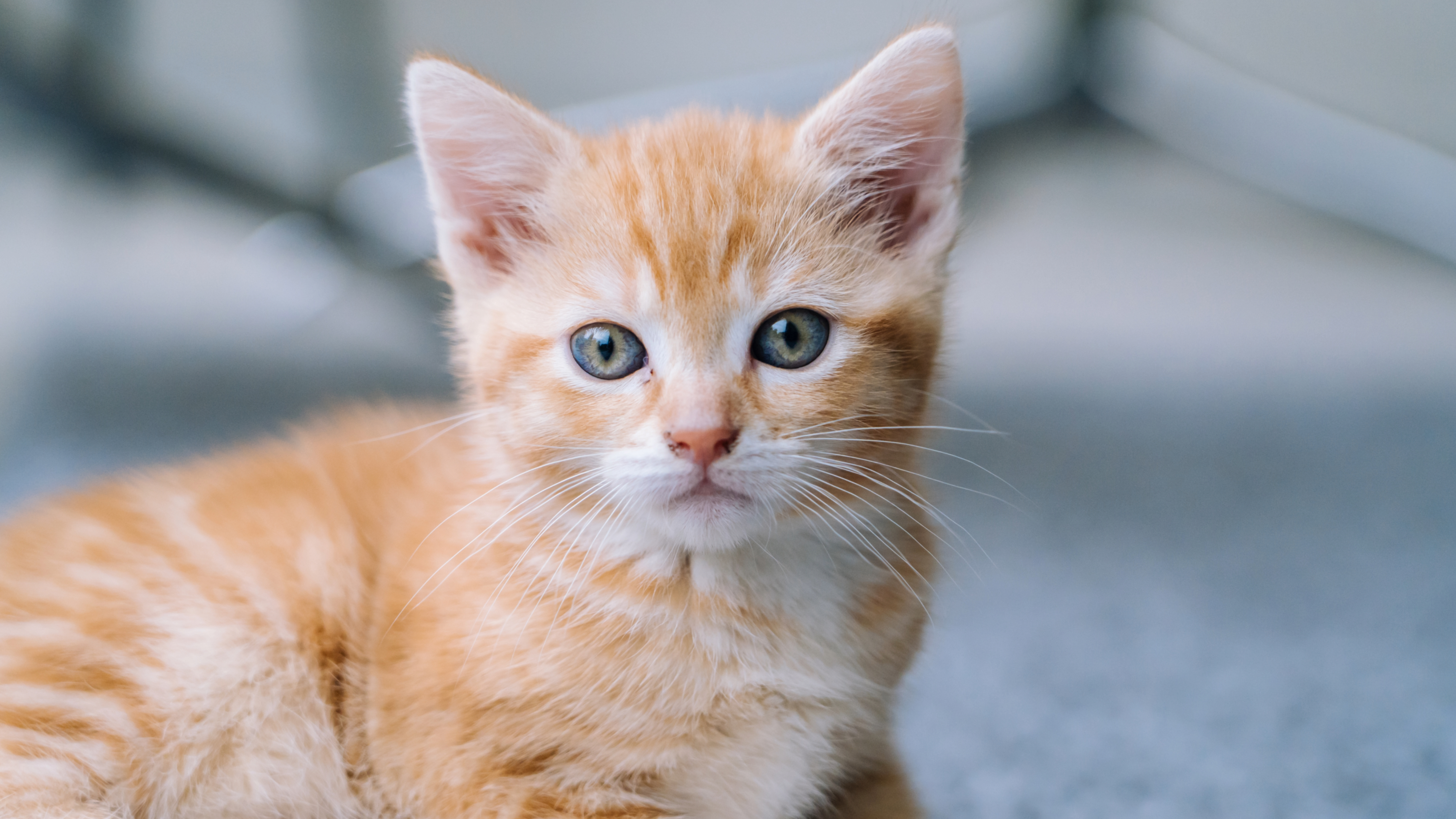
Just like when it comes to us humans, weight gain in kittens can be caused by many single or overlapping factors. Below, Dr. MacMillan shares some of the most common causes that could be contributing to your kitten being overweight.
1. Sedentary lifestyle
If your kitten currently lacks opportunities to run, jump and play, this could make them prone to weight gain. As Dr. MacMillan explains, "Most kittens are naturally very active, but cage-rest for medical reasons or living in a very confined space could make this tricky."
2. Too many treats
"It can be hard to resist your kitten's adorable face but offering them too many cat treats can lead to weight gain," cautions Dr. MacMillan. "This includes human food scraps as well as kitty snacks."
3. Neutering
Neutering your pet is really important. Not only will it prevent unwanted kittens but it can also reduce the risk of certain health problems and put a stop to behaviors cats exhibit when they're in heat. But it does come with a potential downside and that's weight gain.
"Neutering your pet can reduce their daily energy requirements, which may mean they don’t need quite as many calories as an entire cat," Dr. MacMillan advises.
4. Overfeeding
While it may seem obvious, Dr. MacMillan says it's worth reiterating that overfeeding your kitten will lead to excess weight gain. "Not accurately following the feeding guidelines or allowing your kitten to eat ad-lib can result in them consuming too many calories."
It's worth exploring the benefits of timed feeding (putting a measured portion of food down at set times) if you find that your kitten tends to overeat during the day.
5. Eating another pet's food
If you live in a multi-pet household, it can be tricky to ensure that each pet is getting the correct portion of food as some cats are more than happy to eat for two!
"Your kitten may be helping themselves to the food of another pet in your household, as well as their own," says Dr. MacMillan. "If your kitten is big enough to go outside, then they could be eating food elsewhere too."
HiLife Kitten Mixed Chicken and Tuna Pate Pouches | Amazon
Made with real chicken and tuna, this nutritionally-compete and grain-free wet food is sure to tempt your kitten's tastebuds.
How to help a kitten to lose weight

From following your vet's top kitten feeding tips to ensuring your young fur friend gets plenty of exercise zooming about in hot pursuit of the best kitten toys, there's plenty of simple things you can do to help your kitten lose weight. Here are a few of our favorites...
1. Check their food intake
The first thing you want to do is to check the feeding guidelines for your chosen kitten food. "You need to weigh your pet’s food out each day, as cups or handfuls are not accurate enough," explains Dr. MacMillan.
'How often should I feed my kitten?' is a common question amongst pet parents but the frequency is less important than the quantity. Once you know how much to feed, you can then decide how to split that up.
For example, a young kitten that's three months of age will likely do best having their calories split across four portions a day. Whereas a four month old kitten may be fine with three meals a day.
2. Take care in multi-pet households
Life with more than one pet in the house can be tricky, especially when it comes to mealtimes. That being said, it's important to ensure your overweight kitten isn't eating another pet's food.
Dr. MacMillan recommends trying "automatic pet feeders, which work by reading your cat’s microchip. Alternatively, you could try establishing set mealtimes and feeding your pets separately."
3. Exercise
"Young cats are usually very active, but you can encourage this further by engaging them in play and making sure they have enough space to exercise," Dr. MacMillan advises.
"Providing them with a cat tree, building shelving for them to climb up on, and encouraging regular chasing games with a feather teaser toy will all help."
4. Make mealtimes more challenging with puzzle toys
Making your kitten work for their food can be a great way to encourage them to stay physically active. Plus, as Dr. MacMillan points out, the best cat puzzle feeders "also provide valuable mental stimulation and stops your kitten wolfing their food down too quickly, helping them to feel more satisfied."
5. Cut back on treats
Treats can be a wonderful way to reward your kitten for positive behavior, but it's easy to go overboard. Dr. MacMillan suggests using smaller treats for training and cutting out random snacks that you give to your young fur friend.
"Some owners reserve some of their kitten’s daily food rations to use as treats throughout the day which can help to ensure they are not receiving extra calories."
6. Speak to your vet team
Dr. MacMillan recommends consulting your vet for advice on diet and exercise for your kitten. "Care needs to be taken in young, growing kittens, and things like reduced-calorie foods may not be age-appropriate," she explains. "They will also be able to advise you on your cat’s weight loss goals."
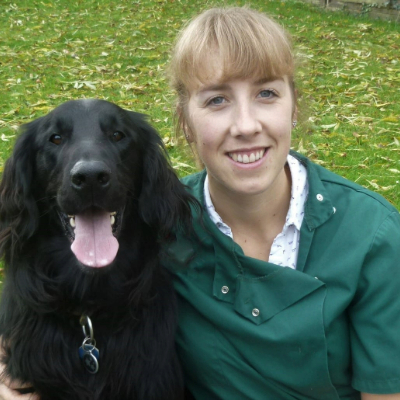
Rebecca is a veterinary surgeon who graduated in 2009 from the Royal Veterinary College in London. She has a wealth of experience in first opinion small animal practice, having done a mixture of day-to-day routine work, on-call emergency duties and managerial roles over the years. She enjoys medicine in particular and she is proud to have recently achieved a BSAVA postgraduate certificate in small animal medicine (with commendation). She writes on various feline and canine topics, including behavior, nutrition, and health. Outside of work and writing she enjoys walking her own dog, spending time with her young family and baking!

Kathryn is a freelance writer who has been a member of the PetsRadar family since it launched in 2020. Highly experienced in her field, she's driven by a desire to provide pet parents with accurate, timely, and informative content that enables them to provide their fur friends with everything they need to thrive. Kathryn works closely with vets and trainers to ensure all articles offer the most up-to-date information across a range of pet-related fields, from insights into health and behavior issues to tips on products and training. When she’s not busy crafting the perfect sentence for her features, buying guides and news pieces, she can be found hanging out with her family (which includes one super sassy cat), drinking copious amounts of Jasmine tea and reading all the books.
